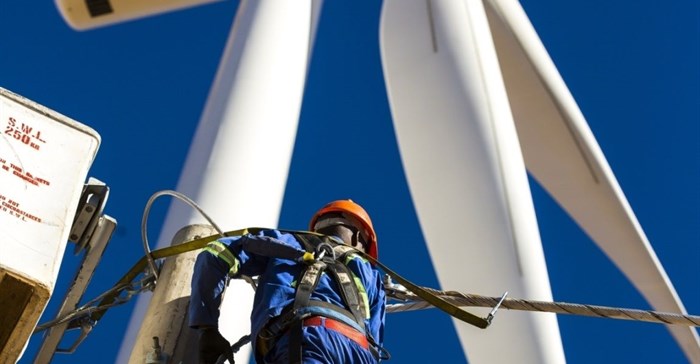The Department of Energy (DoE) and Eskom again did not provide any clarity to investors in the renewable energy sector as to when the power utility will sign power purchase agreements with independent power producers.
More delays
Instead, the inter-governmental task team, in a parliamentary briefing, has proposed further delays to the end of August if not to February 2018. These delays will have direct negative consequences for South Africa’s renewables industry, and growing numbers of companies, employees, graduates and communities are suffering as a result, said the South African Renewable Energy Council (Sarec).
Before the renewables programme ground to a halt in 2015, it was trumpeted as a resounding success by both government and Eskom. Bid tariffs had tumbled to the point where renewable energy has become the cheapest option for new generation capacity available to the country.
Renewable plants are majority owned by South Africans and are typically built in rural areas where they bring unprecedented benefits to poor communities. “The industry had already attracted a substantial ecosystem of service industries and was beginning to leverage investment in heavy upstream fabrication industries,” explained Brenda Martin, chair of Sarec.
Exceeded all policy objectives
The renewables industry has met and generally exceeded all policy objectives set by government. “More importantly we have exceeded employment targets by 27%. More than 98% of renewable projects have been delivered on time. Any cost over-runs have been for the account of investors’ rather than consumers. And all BEE and community ownership targets have been met,” said Martin.
“Should government wish to increase any of these economic development targets in future rounds, the renewable energy industry would welcome a discussion. However, it is clearly not feasible to shift the goal posts for bidding consortia that have already been awarded permits on the basis of the current bid rules.
“We call on the government to hold Eskom and the task team to account for the commitments made in parliament today, namely for final recommendations to be delivered to ministers by the end of June, and for all outstanding ‘interventions’ to be dealt with ‘by August 2017’. Investors are watching this space with deep concern,” concluded Martin.



































